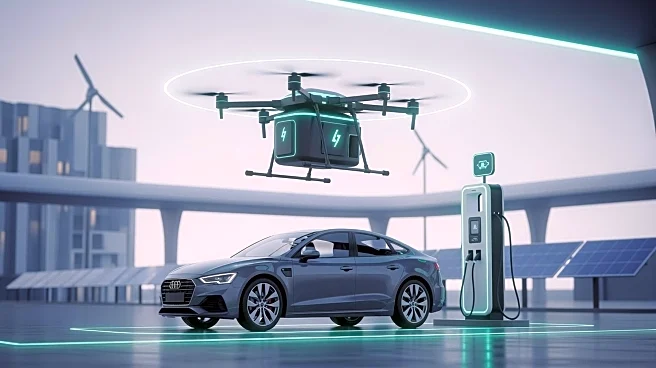What's Happening?
The hybrid ferry Aurora Botnia, operating between Umeå and Vaasa, exemplifies the integration of energy and transport for a fossil-free future. Powered by electricity and Liquefied BioMethane (LBM), the vessel
represents a shift towards energy-efficient maritime transport. The success of Aurora Botnia relies on coordinated energy supply, transport scheduling, and port operations. This integration is part of a broader movement where shippers demand reliable, transparent, and sustainable logistics solutions. Initiatives like the Virtual Watch Tower (VWT) are emerging to provide shared visibility and actionable insights, aligning logistics performance with energy availability.
Why It's Important?
The integration of energy and transport systems is crucial for achieving fossil-free logistics. Shippers are increasingly influencing the development of sustainable transport solutions, driving innovation and collaboration across sectors. The Aurora Botnia's operations demonstrate the potential for reducing emissions and improving energy efficiency in maritime transport. This shift is significant for the logistics industry, as it aligns with global efforts to decarbonize transport and enhance supply chain resilience. The demand for fossil-free logistics is reshaping industry practices, encouraging investment in renewable energy and advanced technologies.
What's Next?
As the logistics industry continues to evolve, stakeholders will focus on expanding the integration of energy and transport systems. The development of digital twins and collaborative decision environments will play a key role in optimizing operations and reducing emissions. Shippers and transport operators may explore new partnerships and technologies to enhance sustainability and efficiency. The success of initiatives like the VWT could lead to broader adoption of data-driven approaches, transforming logistics into a more resilient and sustainable sector.
Beyond the Headlines
The integration of energy and transport systems highlights the need for cross-sector collaboration to achieve sustainability goals. It underscores the importance of digitalization and data sharing in driving innovation and efficiency. The shift towards fossil-free logistics represents a significant cultural and operational change, requiring stakeholders to rethink traditional practices and embrace new technologies.












